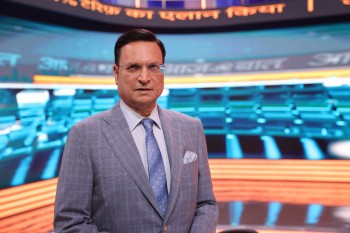
In a major step towards curbing corruption in politics, the government introduced three bills in Lok Sabha which provide for automatic removal of Prime Minister, Chief Minister and ministers in Centre, states and union territories, if they are sent to custody for more than 30 days on serious charges.
The bills, moved by Home Minister Amit Shah, were referred to a joint parliamentary committee for review, even as opposition members created a ruckus inside the Lok Sabha.
There was no legal framework till now for a minister or a chief minister losing his post if he or she fails to get bail from court and remains in jail for a longer duration. Neither the CM or minister can be dismissed nor can any court remove them from their post. The 130th Constitution Amendment Bill will have to be passed in both the Houses by a two-third majority.
When the bill becomes law, the accountability of people holding constitutional posts like the Prime Minister, chief ministers or ministers at the Centre and states will be fixed. It will not be left to their discretion whether to resign on moral grounds or not. This law will be applicable only to charges that provide for imprisonment up to five years or more.
In the recent past, when the then Delhi CM Arvind Kejriwal was arrested and sent to jail, he did not quit his post. Similarly, in Tamil Nadu, a minister Senthil Balaji continued to be in his post though he was arrested by Enforcement Directorate and sent to jail on corruption charges.
Chief Ministers of several non-BJP ruled states have opposed these bills. Tamil Nadu chief minister M.K.Stalin said, “the first move of any emerging dictator is to give himself the power to arrest and remove rivals from office”. West Bengal chief minister Mamata Banerjee said, “I condemn it as a step towards something more than a super-Emergency.
Defending the move, Home Minister Amit Shah said, “we cannot be so shameless that we continue to occupy constitutional posts while facing serious charges”.
There is a background behind the introduction of these bills. In recent times, Arvind Kejriwal tried to run his government in Delhi from jail. At that time, both the Centre and the courts were in a fix, because there is no legal provision to stop a chief minister from working inside a jail.
The framers of our Constitution never envisaged such circumstances when a CM or a minister could refuse to resign on moral grounds despite being sent to jail. They never imagined that the lines of morality would be buried so deep.
It is surprising that the opposition parties are opposing this bill against corruption, but what will they tell the people in public? Will they tell the people that a chief minister of a minister should be allowed to run the government or ministry from jail and take decisions. What is the justification behind this?
This is a major reform and it was essential. It will now become mandatory for any minister to resign, if he or she stays in custody for more than 30 days.
Attack on Delhi CM : Motive unknown
A man from Gujarat went to the official residence of Delhi chief minister Rekha Gupta on Wednesday when she was meeting common people who had come to air their grievances. The man slapped the chief minister, caught hold of her hair and threw her to the ground, before he was overpowered by security personnel.
Rekha Gupta had injuries to her head, neck, shoulder and back. On interrogation by police, it was found that the man, Rajeshbhai Sakharia, age 41, hails from Rajkot, Gujarat. Police is yet to find out the motive. The man had earlier done a recce of the chief minister’s residence and police found video clips of him outside the CM’s residence. The man had come to Delhi on Sunday.
Delhi minister Parvesh Verma says, there seems to be a deep conspiracy behind this. The man stayed in Gujarat Bhavan on Civil Lines, 800 metre away from the CM’s residence.
According to police, the man had a criminal background in Rajkot. He had five cases lodged against him. Still, the exact motive is unknown.
This attack points to a serious security lapse. The chief minister is accompanied by 20-25 security staff and Delhi Police personnel man the outer ring.
One thing is clear. The attack on Rekha Gupta was done after careful planning. It is clear that the attacker’s motive was not to stage any protest. The attack could have been fatal.
Police will surely find out the motive, but for now, the chief minister can no more meet commoners freely because of the risk to her life.
Since the time Rekha Gupta became CM, she had been constantly meeting common people. Her residence and office were open for all. Her security personnel will now prevent people from meeting their chief minister easily.